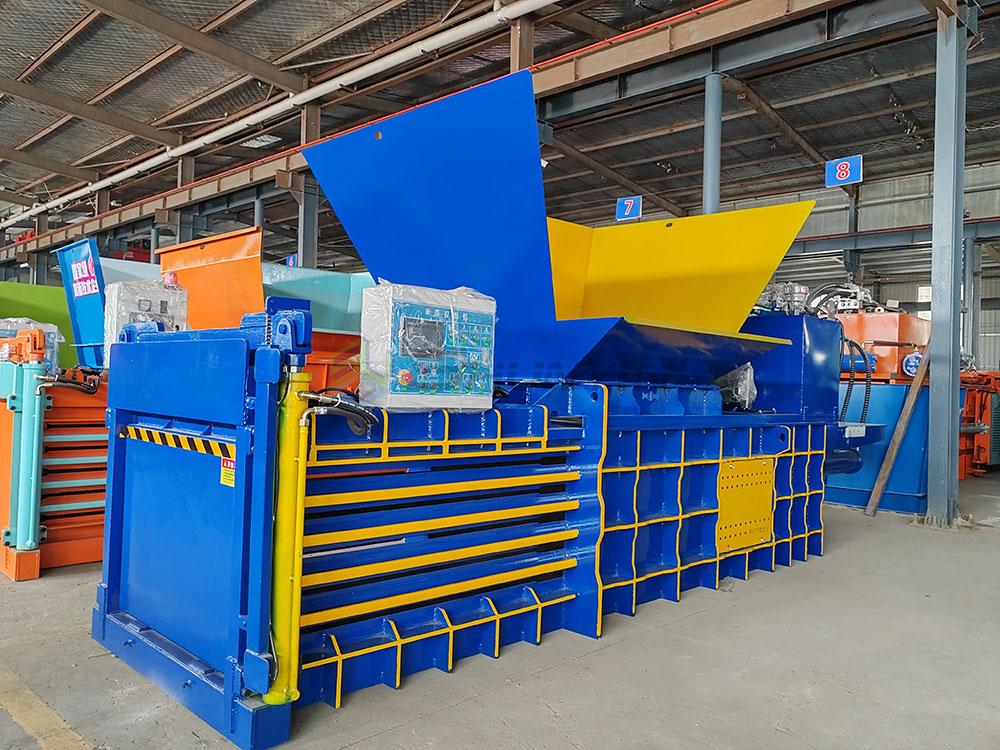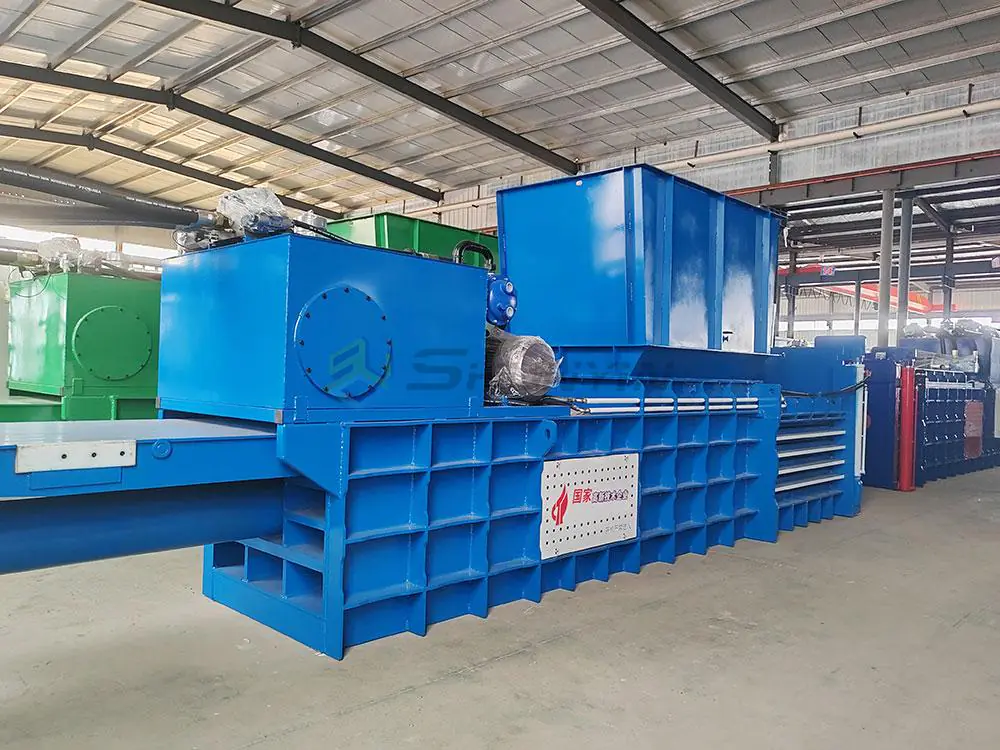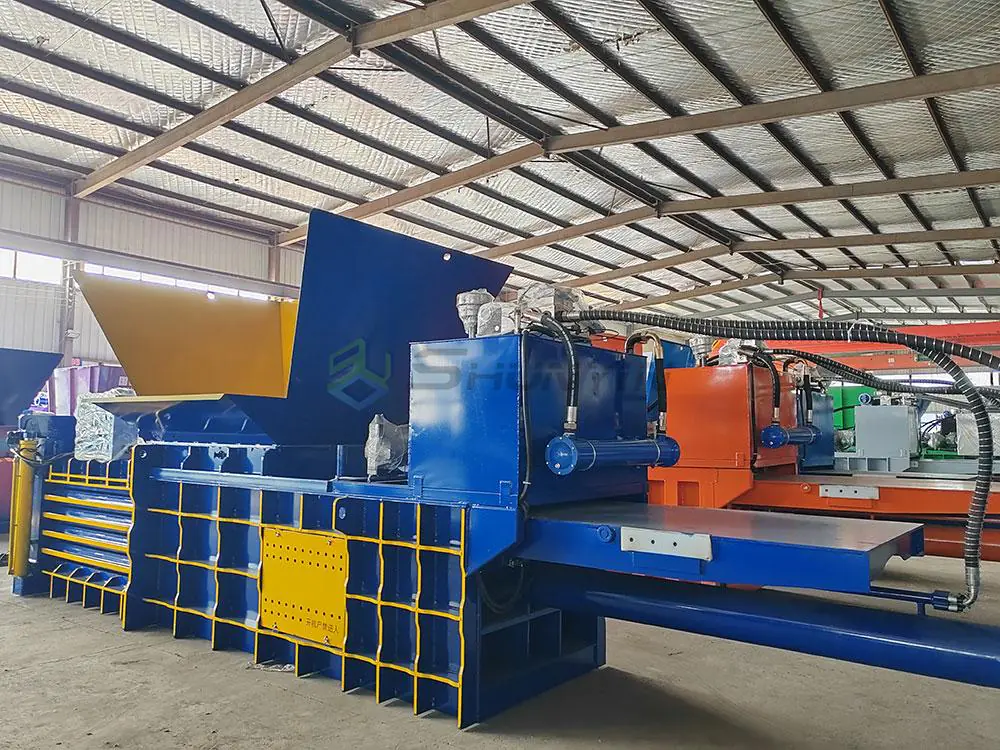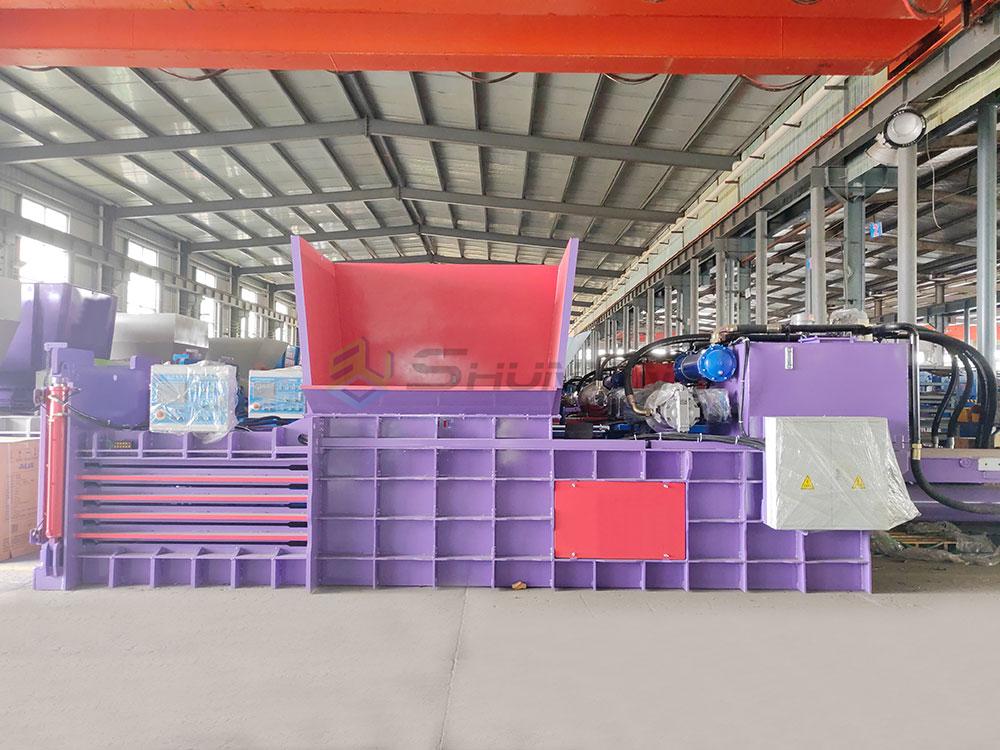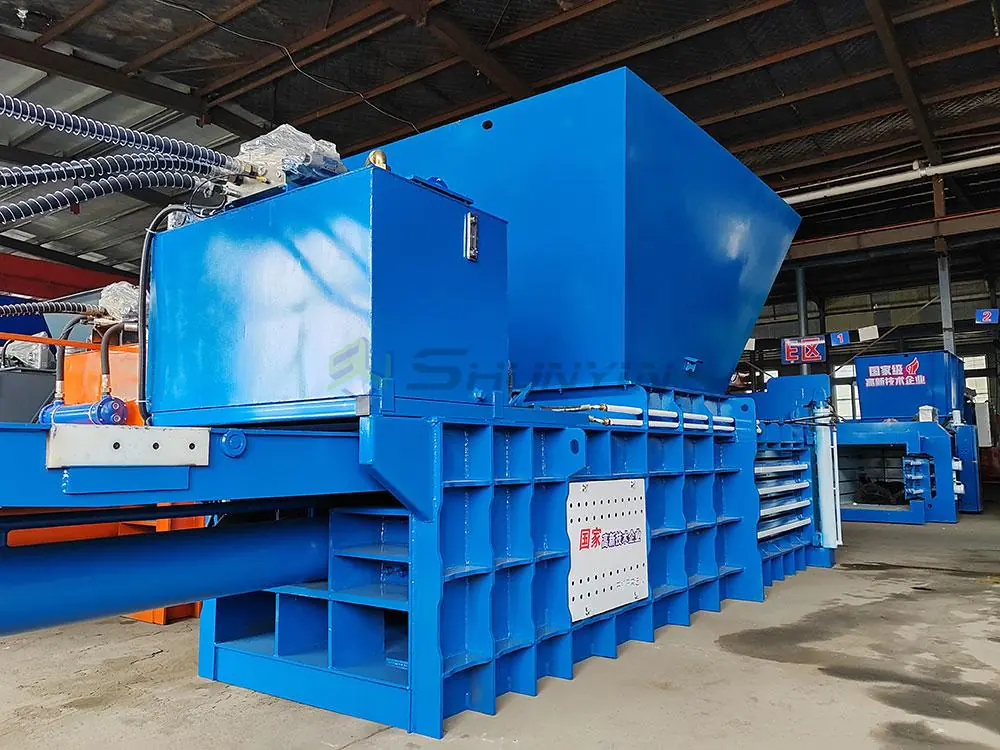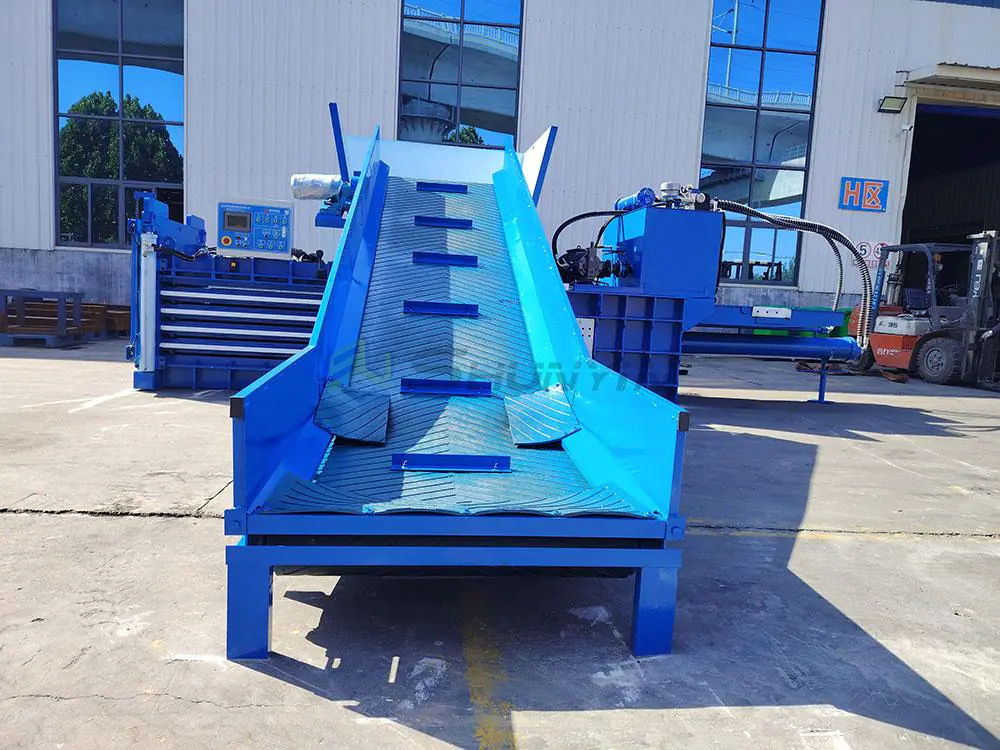
Cardboard manufacturers face the challenge of efficiently handling large volumes of cardboard waste. A horizontal baler machine offers a solution by optimizing the waste handling process and improving recycling efficiency.
A horizontal baler machine1 is key for cardboard manufacturers because it boosts efficiency, saves space, and cuts costs. Here’s how:
1. Increased Efficiency
- It compresses large amounts of cardboard, reducing manual labor and improving throughput.
2. Space-Saving
- The machine compacts cardboard into small bales, allowing more storage in less space.
3. Better Waste Handling
- It organizes waste, making recycling more efficient.
4. Cost Reduction
- Automating the process lowers labor costs and makes recycling more affordable.
5. Eco-Friendly
- It helps reduce landfill waste by supporting better recycling practices.
For businesses in the cardboard manufacturing industry, efficient waste management is crucial. Let’s explore why the horizontal baler machine is indispensable for these operations.
What are the benefits of cardboard baler?
A cardboard baler offers several key benefits that improve waste management, storage, and recycling efficiency for manufacturers.
Cardboard balers reduce waste volume, enhance recycling capabilities, and make storage and transport more efficient. By compressing large amounts of cardboard into uniform bales, businesses can save time, space, and resources.

Key Benefits of Cardboard Balers
- Waste Volume Reduction – Baling cardboard reduces its size by up to 90%, freeing up valuable storage space.
- Cost Savings – Baled materials are more cost-effective to transport, reducing labor and transportation costs.
- Improved Recycling Efficiency – Compact bales are easier for recycling centers to process, leading to higher recycling rates and greater environmental impact.
| Benefit | Impact |
|---|---|
| Space Saving | Reduces storage needs by compacting materials into bales. |
| Cost Efficiency | Lower transport and labor costs. |
| Recycling Optimization | Increases recycling efficiency and reduces landfill waste. |
By improving waste management practices, cardboard balers help manufacturers streamline operations, reduce costs, and enhance sustainability efforts.
Why are balers important?
Balers play a critical role in waste management and recycling processes, especially for industries like cardboard manufacturing. They are essential for compressing large volumes of waste into compact, manageable bales.
Balers are important because they simplify waste handling, improve storage efficiency, and reduce disposal costs, all while increasing the effectiveness of recycling programs.

The Role of Balers in Waste Management
- Waste Streamlining – Balers reduce the volume of waste materials, making it easier to store and transport them.
- Automation – Modern balers are automated, reducing manual labor and increasing processing speed.
- Sustainability – Balers help manufacturers manage waste more effectively, reducing their environmental footprint and contributing to sustainability goals.
| Feature | Benefit |
|---|---|
| Volume Reduction | Baled waste occupies less space, allowing more efficient storage. |
| Efficiency | Reduces labor costs by automating waste processing. |
| Environmental Impact | Increases recycling rates and reduces waste sent to landfills. |
Balers are integral to improving operational efficiency and environmental sustainability in waste management.
What is the purpose of a baling machine?
A baling machine’s primary purpose is to compress waste materials into dense, manageable bales, making them easier to store, transport, and recycle.
The purpose of a baling machine is to optimize waste handling by reducing the volume of materials, improving storage capacity, and enhancing the recycling process.

Functions of a Baling Machine
- Compression – Baling machines apply pressure to waste materials, reducing their size and making them easier to handle.
- Storage Optimization – Bales are easier to stack, reducing storage space and improving facility organization.
- Improved Recycling – By compacting materials into uniform bales, the recycling process becomes more efficient and cost-effective.
| Purpose | Benefit |
|---|---|
| Compression | Reduces the physical volume of materials, optimizing storage. |
| Efficiency | Streamlines the waste handling process, reducing labor requirements. |
| Recycling | Makes recycling easier by ensuring materials are easier to process. |
Baling machines are essential for businesses that need to manage waste efficiently while contributing to sustainability goals.
What does a recycling baler do?
A recycling baler is used to compact recyclable materials, such as cardboard, paper, plastic, and metals, into bales that are easier to handle, store, and transport. It plays a vital role in the recycling process.
A recycling baler compresses waste into uniform bales, improving the efficiency of recycling operations and making it easier to transport materials to recycling facilities.

How a Recycling Baler Improves Waste Management
- Increased Recycling Efficiency – Compact bales are easier for recycling centers to process, leading to better recycling rates.
- Space Optimization – Baling reduces waste volume, making storage more efficient and organized.
- Transport Savings – Baled materials are easier to transport and take up less space in transport vehicles, reducing fuel and logistical costs.
| Feature | Impact |
|---|---|
| Compact Bales | Easier to store, handle, and transport. |
| Increased Efficiency | Faster processing and higher recycling rates. |
| Cost Reduction | Fewer trips for transport, lowering fuel and labor costs. |
By improving the recycling process, a baler machine helps manufacturers and recycling facilities operate more effectively and sustainably.
Conclusion
The horizontal baler machine is a must-have for cardboard manufacturers. By reducing waste volume, improving recycling efficiency, and optimizing storage and transport, it streamlines operations, cuts costs, and contributes to sustainability. Investing in a horizontal baler enhances operational efficiency and supports eco-friendly waste management practices.
-
Understanding the workings of a horizontal baler machine can help manufacturers optimize their operations and improve efficiency. ↩


